| Accessibility II: Communication by all means: Accessibility for all in
telecommunications enabled by multimedia standards |
Short biography of presenters
|
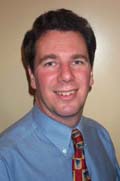
|
Mr. Michael Day is the Product Manager for BT
TextDirect the first service in the world to integrate textphones
calls into mainstream telecommunications. Previously when working in BT's Age and Disability Team he
worked with product managers to incorporate the features required by
disabled people into BT's telephone products. Since the late 80's he has worked on introducing textphone
access in BT, Text Payphones, developing the ITU-T V.18 protocol,
the BT Textphone and with a colleague conceived the principle behind
BT TextDirect, he then guided the development of the idea into the
service that is currently available.
|
|
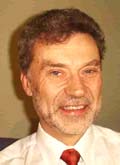
|
Mr Gunnar Fagerberg is currently
Principal Scientific Officer in the unit Elderly and People with
Disabilities in the Information Society Directorate-General of the
European Commission. Previously, he has led research and development
work on assistive technology and accessibility at the Swedish
Handicap Institute, The University of Western Ontario, Canada and
the Royal Institute of Technology in Sweden. He is past president of
the International Society for Augmentative and Alternative
Communication (ISAAC) and the Association for the Advancement of
Assistive Technology in Europe (AAATE).
|
|

|
Mr.
Gunnar Hellström specialises in Accessible Telecommunications and
Information Technology. He is the founder of Omnitor, a Swedish company devoted to consulting
and product development in this area. Through a series of
consultancy tasks, Gunnar has provided international leadership and
been the editor of numerous international standards for text
conversation in multimedia telecommunications, text telephony,
wireless multimedia and video communications for sign language and
lip reading. Gunnar currently serves as Chairman of ITU-T Q.H/16
Accessibility to Multimedia Systems and services. He has also
developed multi-media communication products that optimises personal
communication, among others for deaf and deaf-blind users, making
benefit of some of the standards he has been working with.
|
|
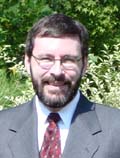
|
Mr. Paul Jones has been involved
in research and development of protocols and system architectures in
the area of multimedia communications, including voice, video, and
data conferencing over IP networks, since 1996. In addition to architecture and software development
activities within Cisco Systems' Voice Technology Group, Mr. Jones
has actively participated in a number of standards and industry
organizations, including the ITU, IETF, ETSI TIPHON, and the IMTC. Most notably, he served as editor of ITU-T Recommendation
H.323, he currently serves as Rapporteur for ITU-T Q.2/16, and he is
also a member of the H.323 Forum Leadership Team. Most recently, he has been heavily involved standards work in
the ITU-T and the IETF to resolve issues with transporting textphone
("TTY") signals over IP networks ("Text over IP"
or ToIP).
|
Hiroshi
Kawamura
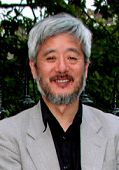
|
Mr. Hiroshi Kawamura is
Director of the Department of Social Rehabilitation, Research
Institute of the National Rehabilitation Center for Persons with
Disabilities (NRCD). Trained in geography at faculty of science, he
has vast experience in disability-related work and issues; served as
the Chairperson of the Section of Libraries for the Blind of the
International Federation of Library Associations and Institutions,
serving as one of the founders and researcher on Digital Accessible
Information System (DAISY) as an international accessibility
standard, member of Japan International Cooperation Agency (JICA)
Advisory Committee for Asia Pacific Development Center on
Disability, member of Global Applied Disability Research and
Information Network on Employment and Training (GLADNET)
Association. He is a Steering Committee member of the Web
Accessibility Initiative/W3C. He took initiative to revise the
copyright law to meet the requirements of persons with disabilities,
supports DAISY implementation in developing countries, and conducts
research on disaster mitigation, preparedness and response to meet
the needs of people with disabilities through accessible ICT
development. ICT design for everybody including people with
disabilities is the major area of his professional concern.
Currently he acts as the Focal Point of Disability Family Groups of
the Civil Society Bureau of the World Summit for the Information
Society (WSIS).
|
|
Beat Kleeb
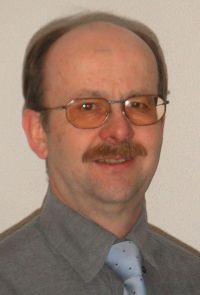
|
Mr Beat Kleeb is a Chemist working in Product Development and as
Marketing Supporter for industrial chemicals. He performs voluntary
work within the deaf community in Switzerland as Vice President in
the Cooperative of Electronics for the Deaf (Genossenschaft Hörgeschädigten
Elektronik, GHE), Vice President of Manufacture and distribution of
technical aids for the Deaf and hearing impaired in GHE
(Text-telephones, flashlight systems, alarm clocks), and President
of the Pro Communication Foundation for Communication Services (PROCOM,
Stiftung Kommunikationshilfen, Wald). He was a Member of Committee;
vice president; honorary member of the Schweizerischer Gehörlosenbund,
Zentralvorstand (Swiss Federation of the Deaf, Central Board = Swiss
NAD; 1979 - 1992), President, member of board of the Schweizerischer
Verband für das Gehörlosenwesen (Swiss Association for the Deaf;
1992 - 1999) and Member of Commission/Expert for technical Aids for
the Deaf in the World Federation of the Deaf.
Mr Kleeb is born in Switzerland and became gradually deaf between
age 10 and 14. He received his B.A./M.A. in Chemistry from the
Engineering College of Chur and was a Special Student at Gallaudet
University, Washington D.C., USA.
|
|
Urs Linder
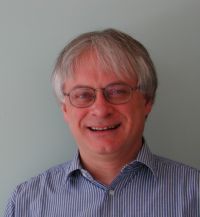
|
Mr.Urs Linder is specialised in Accessible Telecommunications and Information Technology with a
degree in electronics from the Swiss Federal Institute of Technology (ETH). He is the founder and Director of the “Genossenschaft Hörgeschädigten-Elektronik”,
a Swiss organisation specialised in communication technology for deaf and hard of hearing persons since 1979. This organisation is
now divided into PROCOM, Foundation for Communication for deaf and hard of hearings, managing the Swiss relay (Interpreter Centre and
Call Centre for relaying communications between Text Telephone users and “normal“ Telephones) and the GHE-CES Electronic AG
(manufacturer of communication and other electronic devices for handicapped people). Urs is one of the pioneers in Europe in the
development and production of Text Telephones. He is now busy with multi-media communication software and products, based on IETF's
SIP.
|
|
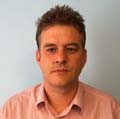
|
Mr. Michael Quinlan has worked for the British
Deaf Association (BDA) in the UK for ten years as the Multimedia
Information Manager. He has also worked on many projects for
different Government bodies and Schools for the Deaf in the UK. He
has extensive knowledge of BSL (British Sign Language) and has
worked as a Sign/Translation Monitor on several videos/CD-ROMs aimed
at the Deaf community. His skills and knowledge are directed to
ensure that BSL videos are accessible and made in a way that is
clearly understood by Deaf People. He is currently managing the
WISDOM project on behalf of the British Deaf Association (one of the
WISDOM project partners). |
|

|
Mr. Pierre-André Probst started his professional career as a
Research assistant at the High Frequency Institute of the Swiss
Federal Institute of Technology in Zurich (research work and tutor)
in the early seventies. He progressed through jobs up to Executive
Vice President of Swisscom, Member of the Management Board with
responsibility for the Network Services Division (strategy, planning
and implementation of Swisscom network platforms). He was also Head
of External Relations (1999-2000), relations with international
organizations (UIT, ETNO, ETSI, etc.) and the Swiss political and
economical bodies and now acts as an Independent consultant in the
area of ICT. He has participated in the standardization work in
ITU-T for many years, as Rapporteur, Working Party Chairman, and
Study Group Chair. For the last 8 years, he has been the chair of
ITU-T Study Group 16, "Multimedia Systems, Services and
Terminals". |
|
|
|